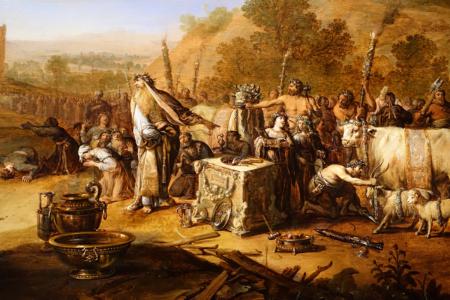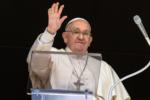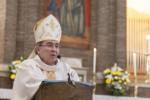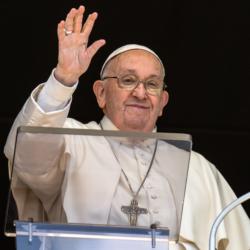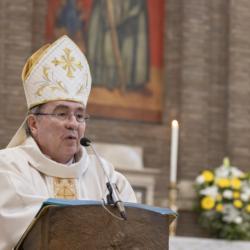Boston interfaith organization to celebrate 10 years of service
BRIGHTON -- Committed to helping immigrants, youth in violent neighborhoods and the uninsured, the Greater Boston Interfaith Organization (GBIO) seeks to continue to address concerns in communities by crossing religious, ethnic and class lines.
GBIO will celebrate its 10th anniversary with a gathering at Boston University’s Case Gym on May 27 from 7-8:30 p.m. Gov. Deval Patrick, Boston Mayor Tom Menino and many involved in the organization’s history are scheduled to attend.
Clergy and community leaders founded the organization in 1996, and Catholic pastors have been involved from the beginning. Its membership includes more than 70 institutions including religious congregations, community development corporations, unions and other civic organizations. Collectively, the membership represents 50,000 people.
Cheryl Andes, GBIO’s lead organizer for the past four years, said of the organization’s founders, “They had a vision to build an organization that could cross class, race and faith lines and give people of faith and democratic values an arena where they could get to know one another.”
In the past decade, GBIO has helped pass the affordable housing trust fund in Massachusetts in 2000, worked on a campaign to improve the working conditions at nursing homes in 2003 and 2004, provided financial education for more than 350 people and participated in the passage of statewide health reform in 2006, she said.
Currently, the organization deals with the communal concerns about immigration, youth violence and healthcare, she added.
GBIO member Brother Jack Rathschmidt, OFM Cap. said the organization seeks to give all people, especially the poor, a voice in civic affairs.
“When you really listen to folks, you begin to realize that there are issues that draw us together, especially the social kind, and rooted in faith we can be very powerful,” he said.
Addressing issues individually does not have the same strength as confronting them as a unified group. For that reason, GBIO only chooses issues that will not divide its membership, he added.
The organization takes on common, human rights issues that are rooted in faith from the grassroots. Sometimes the tasks are as simple as installing a crosswalk so that parish school children can safely cross the street to the parish center, he said.
Fathers Gerald Osterman and George Carlson, two of GBIO’s founders, said that working together with others in the community creates a bond that unites people of different faiths, cultures, social classes and interests.
Father Osterman, pastor at Immaculate Conception Parish in Everett, said the strength formed from that unity reinforces the individual faith communities as well.
He added that GBIO’s initial gathering attracted more than 4,000 people and continues to attract those who seek a voice in their local government.
He said of the organization, “Its purpose is to make democracy work in the sense of discerning from people what their needs are and helping them work toward a response to that need.”
Father Carlson, pastor at Holy Name Parish in West Roxbury, said a large, community-based organization is necessary to move issues through the democratic process. The organization will have leverage only if it is “large, strong, knowledgeable and persistent,” he said.
“You can do a lot more together than you can by yourself,” he added.
